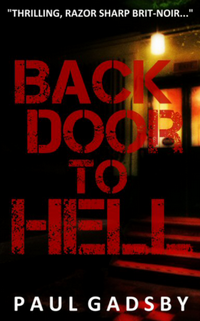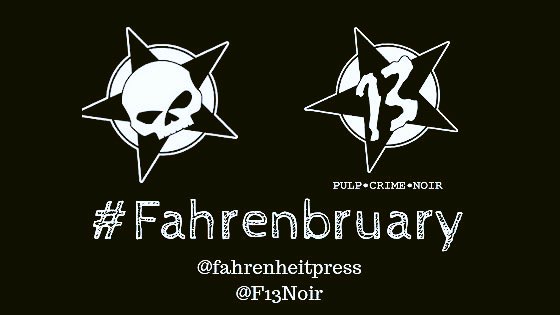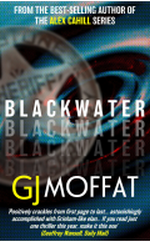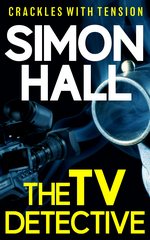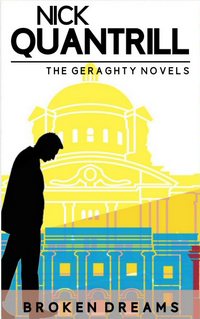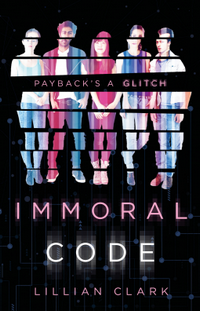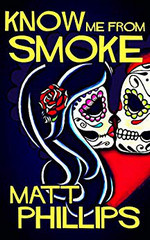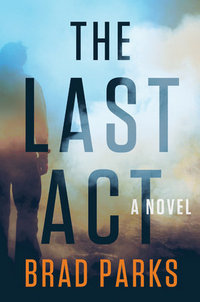 The Last Act
The Last Act
by Brad Parks
ARC, 368 pg.
Dutton Books, 2019
Read: February 26 – 27, 2019

Inspired by the Wachovia Bank scandal from a few years back, Brad Parks’ third stand-alone is a departure in a sense from his previous two. Rather than crimes close to home for his protagonists, this is crime on an international scale, with most of the figures involved never laying eyes on each other.
Mitch Dupree was a high-level bank executive who was convicted of aiding a Mexican drug cartel by laundering a lot of money. He’s been sentenced to a minimum security prison in West Virginia. If after reading this — or even while reading it — you want a few more details about what happened with Dupree before the novel starts (or more specifics about the events leading up to his arrest), check out the prequel short story, The Whistle Blower. He has made it known both far and wide that he has a large amount of evidence against the cartel tucked away safely — and as long as he and/or his family are alive, that evidence stays hidden.
Naturally, the DEA, FBI and the cartel want to get their hands on it — and are willing to do some above and beyond work to get it.
Enter Tommy Jump — he’d risen to fame and prominence (and a Tony nomination) as a child on Broadway, but as he aged into adulthood the parts dried up. He’s on the verge of calling it quits — at least for a couple of decades. He’s approached by a childhood friend, Danny Ruiz, flashing a shiny FBI badge and an interesting job offer. Danny and his partner, Rick Gilmartin, want Tommy to go undercover with an assumed identity of a bank robber and serve time in the same prison. He has six months to get close to Dupree, win his trust and get the location of the documents. If the intelligence he gathers leads to indictments, he gets a hefty bonus on top of the pretty nice initial paycheck (all the funds come from civil forfeiture, and the well seems to run pretty deep). Given that his fiancé — a painter waiting to be discovered — just told him she was pregnant, any kind of pay-day sounds good to an out-of-work actor, one with a pay-day that could set them up for years? How can he pass that up?
The early stages of the plan go pretty smoothly — Tommy’s given a new identity, develops a cover story and is sentenced to the same prison. He arrives and gets settled — not really making friends, but getting well acquainted with fellow inmates, who show him the ropes and help him get acclimated. It goes so smoothly, actually, that it bugged me a little. Sure, he’s an actor, but this isn’t a play, there’s no script, and it seems easy. But, Tommy’s such a likeable guy, a winning narrator that I just kept shrugging off my skepticism and rolled with it — I wanted things to work out for Tommy and Amanda, I wanted to see what happened with Dupree — so whatever it took to get me to seeing if things would work out for them I could accept.
And then — because this is a thriller, because Parks is good at torturing his readers (that’s why we keep coming back), and because no one is as lucky as Tommy seemed to be — everything got nearly impossible. On a dime, the momentum changes and suddenly thing look incredibly grim for Tommy, Amanda, Dupree and several other characters. Naturally, at the same time the bottom fell out and I was reeling from a pretty significant reveal, my lunch break ended and I had to get back to work with no time to process things. I know it’s stupid, but it felt like Parks planned it that way.
The novel alternates between Tommy chapters and chapters with Amanda, one of the cartel’s higher-ups and his efforts to find the evidence, Danny and Rick, and Mitch Dupree’s wife. I was honestly surprised how much time we got with Amanda and Mrs. Dupree — both of whom had their own character arcs independent of (although influenced by) Tommy and Mitch. I could’ve used a little more of both of them — not that Parks short-changed them in any way, but their stories were so interesting that I would’ve enjoyed it. Alternatively, by the end of the book (especially in light of The Whistle Blower), I was surprised how little time we got with Mitch Dupree — again, it’s not that he was short-changed, I just would’ve assumed we’d have more time with him. And what time we do have with him was by and large mediated through Tommy or his wife.
Beyond that, all the characters are well-drawn, well-developed and the kind that you would like to spend more time with. Parks has always displayed a great knack at creating characters that you can easily imagine coming across in real life — no matter their walk of life. They’re not all good people (particularly those who are aligned with the cartel), but they’re all believable people.
Before I get back to what Parks did right, I have a couple of problems that I want to talk about — as always, I’m afraid that the amount of space I spend talking about them is going to give the idea that I had real problems with the book as a whole. I didn’t. It’s just a couple of issues — issues that take more space to explain than the bits I like take. Still, they’re worth talking about.
I’m not 100% convinced that Parks adequately gets the point across about how dangerous this cartel that Tommy’s mixed up in is. Don’t get me wrong, it’s not like he portrays them as cuddly or anything. But I’m still not sure I got a large sense of threat and doom from them–Tommy and Dupree carry that sense, they’re adequately scared (especially Dupree), but I’m not sure that Parks gets the readers to be. I know he’s capable of it, I’m just not sure he did it here.
Similarly, I think he could’ve done a better job depicting life in the minimum security prison, the daily ins and outs — the lack of privacy, the loneliness, the hardships. I’m struggling for words here — the deprivations from a life of liberty that make prison a place you want to avoid, even a minimum security prison.. . It honestly felt like Tommy had an easier time getting up to stuff (including out-of-the-building excursions) in the middle of the night than Harry, Ron and Hermione did at Hogwarts. Or to put it in a different light — Say Nothing‘s Scott Sampson’s pretty sizeable home and nice office, felt far more confining than the prison did. And the small house that Melanie Barrick called home in Closer Than You Know seemed much more restricting and frightening than Tommy’s incarceration (as did the county jail she spent time in).
That said — what Parks was able to convey very strongly was the life-and-death nature of the situation that Tommy, Dupree, and Dupree’s wife was in. Also, the questions of identity, the future consequences of everyone’s actions loomed large here and dominated their thoughts, motives and actions. Where Scott and Melanie’s stories were much more immediate in their focus (yes, with long-range repercussions, but a very intense focus on the immediate future), Tommy’s story and his own focus is on the future. He spends very little time thinking about the now of things, most of his eye is on a decade away — which is likely tied in to his sentence.
As I mentioned earlier, when things started going bad for Tommy, they went really bad — and the rest of the book didn’t lighten up on him. It’s almost as if Parks lulled readers into letting their guard down before hitting them hard (actually, it’s probably exactly that). The twists and turns start to come fast and relentlessly. The beginning of the book is interesting and winning — and then once the hook is set, Parks just messes with you and you can’t relax until everything is over. In his previous stand-alones, Parks pretty much kept the tension and suspense going from the first chapter theory the end. In this book, he saved almost all of it until the end, so it hits you harder. So it stops being about characters that you’d like to see succeed or find out more about, to characters that you like and have to know if they’re going to survive with their wits, health and family intact — and you have to know it right now.
About the same time that things got intense, I had a realization — I think I’ve figured out what makes Parks’ novels work so well, how he gets his readers to commit — in The Last Act — and everything else he writes — what matters most is family. Ultimately, all his books are celebrations of family, and what people will go through for the sake of family. It’s tucked away in some of the Carter Ross books — but, without going back to reread any, I’m pretty sure its there. But especially in his stand-alones, this is Parks’ recurring theme. It’s the way he connects his audience to whatever his protagonist is going through and to the protagonists themselves. There’s something instinctive, primal about the way that Parks portrays family and the lengths that individuals will go through for them — whether the family is just starting or well-established. something that Tommy and Dupree have a conversation about made that click with/for me — and thinking about it is the only thing that got me to think about putting this book down for a moment.
I’ve yet to be disappointed by a Parks book, I’ve enjoyed all of them — and this is no exception. I do think there’s something special about this one, both in Park’s construction of the novel and what it’s saying about the characters. He takes some risks, and does some things he hadn’t done before, and I was pleased to see the results. There’s a lot of heart in The Last Act, a lot of tension, and more hope than you might expect. There’s also some things said about the drug war and the prison system that are worth reflecting on. I’m not sure what else I can say to convince you to try this, so I’ll just call that good.
Disclaimer: I received this ARC from Dutton Books, which did not influence anything I had to say about it — it just means I was able to say something about it before the publication date. I do thank them for the opportunity, however.
—–




